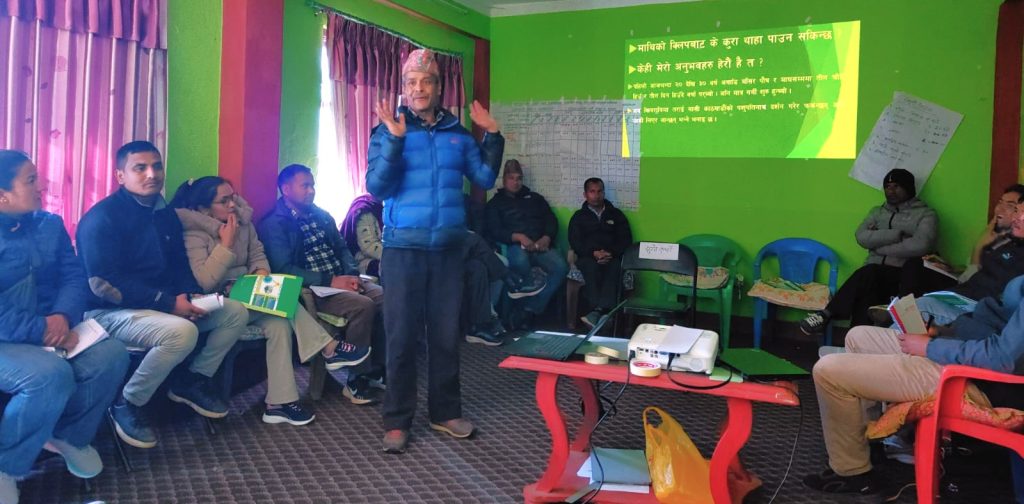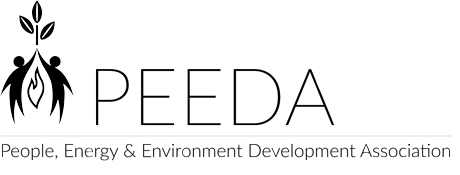Localizing climate and disaster education at School level
Unpredictable rainy seasons are disrupting farming cycles, forcing students to skip school and work in rice fields. Around 40% of them miss classes during this time, not just losing lessons but risking their future. How can we bridge the gap between climate change awareness and education? And how can we expect future generations to fight climate change if their teachers aren’t equipped with the right knowledge?

Children will be the generation facing the greatest impacts of climate change in the future, so learning about it is not just an option—it’s a necessity. To address this, a three-day training program was conducted in Mainapokhari, Baiteshwor-5, bringing together 23 social and science teachers from 14 schools across Baiteshwor and Gaurishankar Rural Municipalities. The program aimed to enhance teachers’ knowledge of climate change and equip them with effective teaching strategies to educate their students on these issues.
The first day focused on the science of climate change, its impacts, and national-level adaptation and mitigation strategies, followed by discussions on local approaches. On the second day, participants explored national and international laws related to climate change and disaster management. Teachers actively engaged in group activities such as seasonal and crop calendar development, resource mapping, differential impact assessment, vulnerability risk assessment, and adaptation planning. A disaster preparedness session further enriched the learning experience. The final day was dedicated to practical learning, where teachers conducted micro-teaching demonstrations in schools, applying their newly acquired knowledge in a real classroom setting.

Climate change education is not just an academic subject—it’s a necessity for preparing future generations to face its challenges. Teachers play a crucial role in shaping young minds and empowering students to become climate-conscious citizens. By integrating climate science, adaptation strategies, and disaster preparedness into education, we can bridge the gap between awareness and action.
“Investing in teachers today means investing in a more resilient future” said Mr. Gitakrishna Sharma, Principal of Jaladevi Secondary School, Baiteshwor Rural Municipality.
“Although climate change is already included in the social and science curriculum, this program provided in-depth knowledge that is extremely useful to us,” added Mr. Kabindra Khadka from Haleshwor Secondary School, Gaurishankar Rural Municipality.
By:
Usha Thakuri
CC/ DRR Officer at PEEDA
